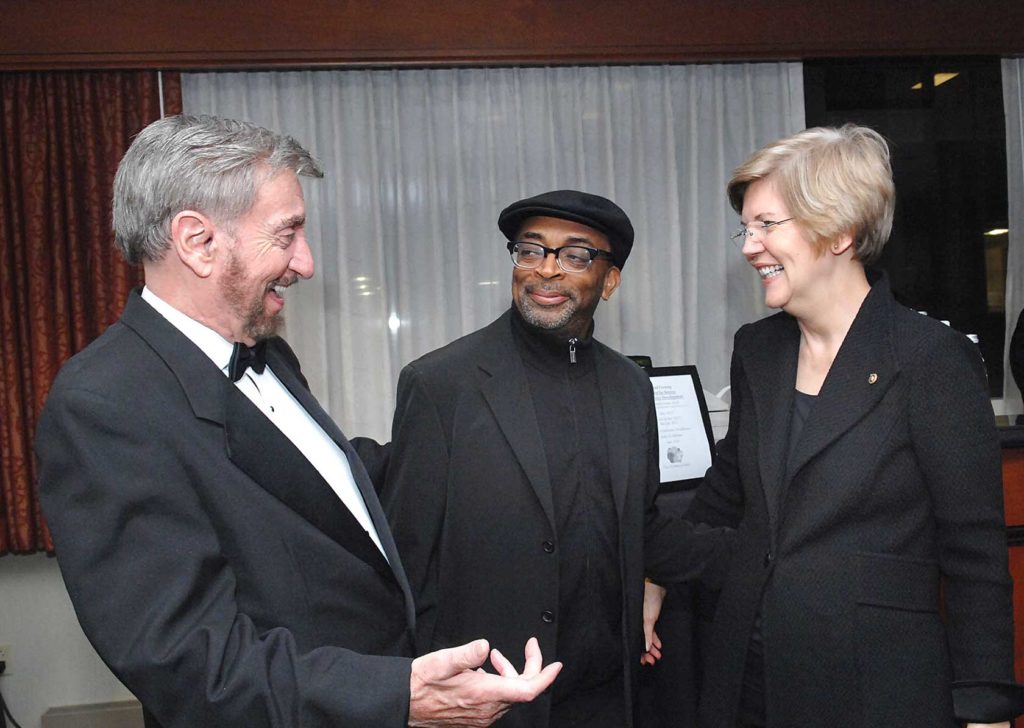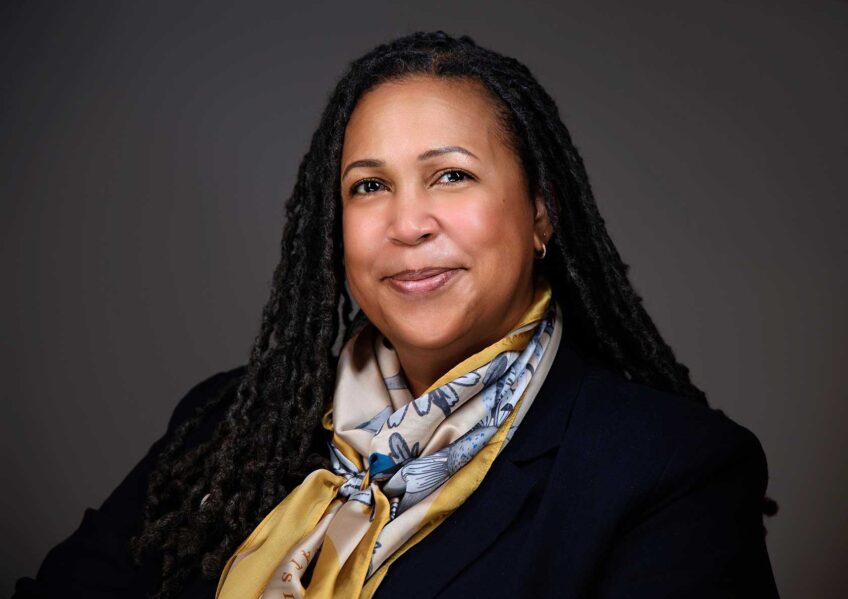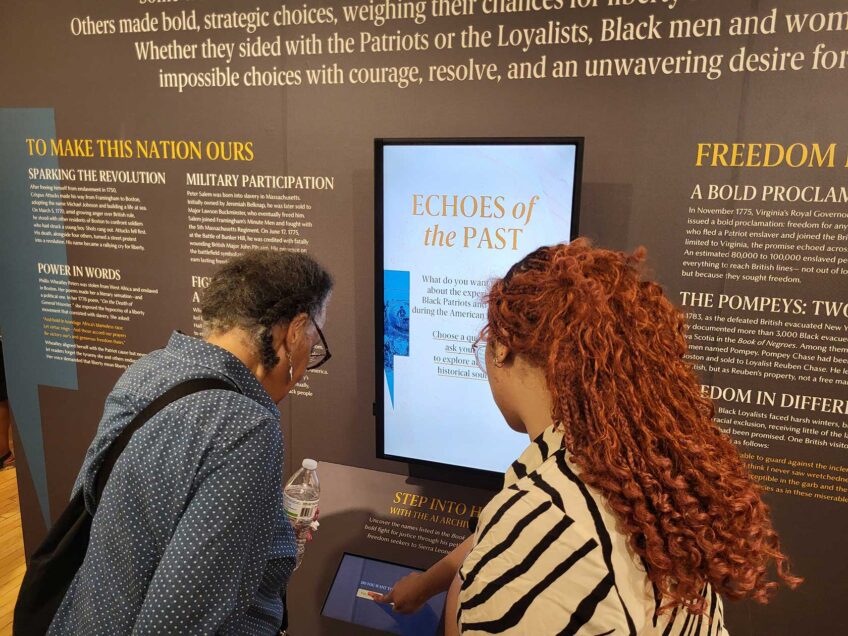John Drew reflects on long career with ABCD
President and CEO to retire after 51 years

John J. Drew, the president and chief executive officer of Action for Boston Community Development, recently announced his intention to retire after 51 years of work with New England’s largest anti-poverty agency.
Drew, who grew up in the Charlestown public housing projects, attended Bentley College while working as a security officer and raising a family. After earning a degree in finance and accounting, he joined a major firm and was assigned to audit ABCD in the early 1970s.
Drawn by the agency’s mission, Drew left behind a promising CPA career to work alongside ABCD’s charismatic director, Bob Coard, for over three decades before becoming ABCD president after Coard’s death in 2009.
Under Drew’s leadership, ABCD expanded its work in educational, energy and social assistance and maintained its national leadership role as a pioneering agency in the “War on Poverty.”
As his retirement approaches, the Banner asked John Drew to reflect on his five decades of service in lifting the lives of low-income families and share some of the lessons learned along the way. The interview has been edited for length.
Prior to your work with ABCD, you were an accountant assigned to audit the agency. What was it about the organization that led you to leave behind a career with a major accounting firm to join the ABCD team?
The ABCD mission — this new start-up organization — this grass-roots operation that was part of a national War on Poverty — resonated with me. I had grown up in public housing. At one point, because of an injury, I needed help and my children were able to attend Head Start. In 1971, ABCD was an exciting place. Most staff members looked at their work as more than a job. They felt they were working together on something big, that they were working toward a solution to the entrenched poverty that plagued so many, to the pain and difficulties they saw in their neighborhoods. I wanted to be part of that movement.
You joined ABCD at a time of rising racial tensions in Boston. How did your experience growing up in public housing in Charlestown shape your ability to reach across lines of race and class in your work with a multi-racial, multi-cultural organization?
I understood what it was like to be one of the “have-nots.” I had been given a second chance and I wanted that opportunity to be available to all people in need, no matter what their racial-ethnic background was. ABCD was a rainbow of color — Black, LatinX, White, Asian, Native American. We were all working for a Black CEO, the politically savvy Bob Coard. Bob didn’t care if you were Black, White or polka-dotted – he just wanted the job done! Other members of the leadership team, including myself, had that same attitude.
Prior to becoming CEO of ABCD, you worked closely with charismatic and visionary leaders like former ABCD President Bob Coard and “First Lady of Roxbury” Melnea Cass. What made them such outstanding leaders and what can the current generation learn from them?
So much goes into the making of a great community leader. They were people-people. They were courageous. They didn’t take no for an answer. They wanted to set things right with the world and were willing to work with everyone — government, business, community to achieve their goals. They were creative — looking outside the box to bring about needed change. They had heart and compassion. The legendary Pat Cusick, a highly educated white guy from a wealthy Southern family, spent years on a chain gang in Georgia because he stood up for housing rights and educational equality for Black residents. At ABCD, he was just one of the many ABCD leaders who brought about legislative change, who forged community-corporate partnerships that meant the opportunity for better lives for poor people and their children. Toward the end of his career, a national organization honored Pat with an award for developing the “Best Housing on the Planet” in the South End. Pat wasn’t alone in his leadership achievements — there was John White, Gloria Fox, Doris Graham and many other strong, charismatic ABCD leaders.
Under the Economic Opportunity Act passed in 1964, ABCD was designated as Boston’s official antipoverty agency. This allowed ABCD to grow to a massive scale and help thousands of people across several neighborhoods. At the same time, you have had to fight government at times to advocate for the poor. In what ways do you think that the government — at municipal, state and federal levels — has helped or hindered progress in your fight against poverty over the decades?
ABCD has always worked hand in hand with federal, state and local governments to achieve optimum outcomes for the low-income residents we serve to seniors, fuel assistance, access to food pantries. ABCD is also all about advocacy. If there are government cutbacks or regulations that hurt people in need, we speak out and mobilize other groups. We go public, seeking out press coverage, facilitating letter-writing campaigns, speaking at community forums and before Congress. We work to get out the vote in low-income neighborhoods. Government funding is essential to our programs and we appreciate the support of our government leaders, but we are the first to let them know if something is wrong.
You once said you feel as though there has never been a good time to leave ABCD because there was always more work to be done. Given that you have been the prominent leadership figure in this establishment for over a decade, what made now the time to leave?
I’m turning 85 soon. I’ve had a long, successful and fulfilling run in the community action-antipoverty movement and it’s time for our talented and seasoned younger folks to take over. My successor, Sharon Scott-Chandler, is a lawyer and a longtime member of the ABCD family who has run challenging programs and served as my deputy for more than 10 years. She will provide outstanding leadership and take ABCD to the next level.
In addition to your non-profit work, you have taught as an adjunct professor at various colleges and universities. How has your teaching experience and contact with a younger generation shaped your approach to your work with ABCD?
Education is all-important. It’s been a privilege to work with students and hear their thoughts and opinions and see them grow as they absorb classwork and learn from my experiences. They tell you what they think — and often their ideas are right on. For them, my work at ABCD brings real-life experience into what they are learning from books. It’s a win-win for all of us.
What career achievement are you proudest of?
I’m very proud of ABCD’s major role in creating institutions in every neighborhood that make a critical difference for low-income residents, for immigrant families, for all those seeking to grab onto a rung of the ladder of opportunity. We have worked within the ABCD community action framework calling for “maximum feasible participation” of neighborhood residents themselves in the decision making that helps move them forward.
COVID-19 saw millions of deaths globally. What was the biggest challenge of dealing with the coronavirus as a front-line soldier in the war on poverty?
ABCD has always been a place that operates “on the ground,” helping people face to face, so the biggest challenge for us and for so many other organizations was switching to virtual services — when many of the people we served did not have internet access. We pulled out all the stops, getting folks at the agency and in the community online. We ran online Head Start classes. Fuel assistance was provided by phone and internet. We continued all ABCD services. We met immense and ongoing challenges with creativity and perseverance.
Public attitudes toward people in need have changed significantly over the decades, mostly for the worse. What should be done to reverse damaging stereotypes about the needs of the poor?
Like any stigma, the stereotypes around living in poverty are hard to erase or mitigate. We need to talk about it. We need to stop blaming the victim and get people to see poverty as a systemic problem that must and can be solved. People want hand up, not a hand out. We need government and business to step in with big ideas and big money and truly make a difference. Conservatives like to say the War on Poverty failed, but poverty did decline in those years. Then funding got diverted because of the Vietnam War and other issues. We need to erase current horrendous income disparities. We need to adopt a mindset that provides access to worth and dignity for all people. We don’t want to continue the current state of affairs where 34 million Americans are living below the poverty level of $27,750 for a family of four. It’s unacceptable.






